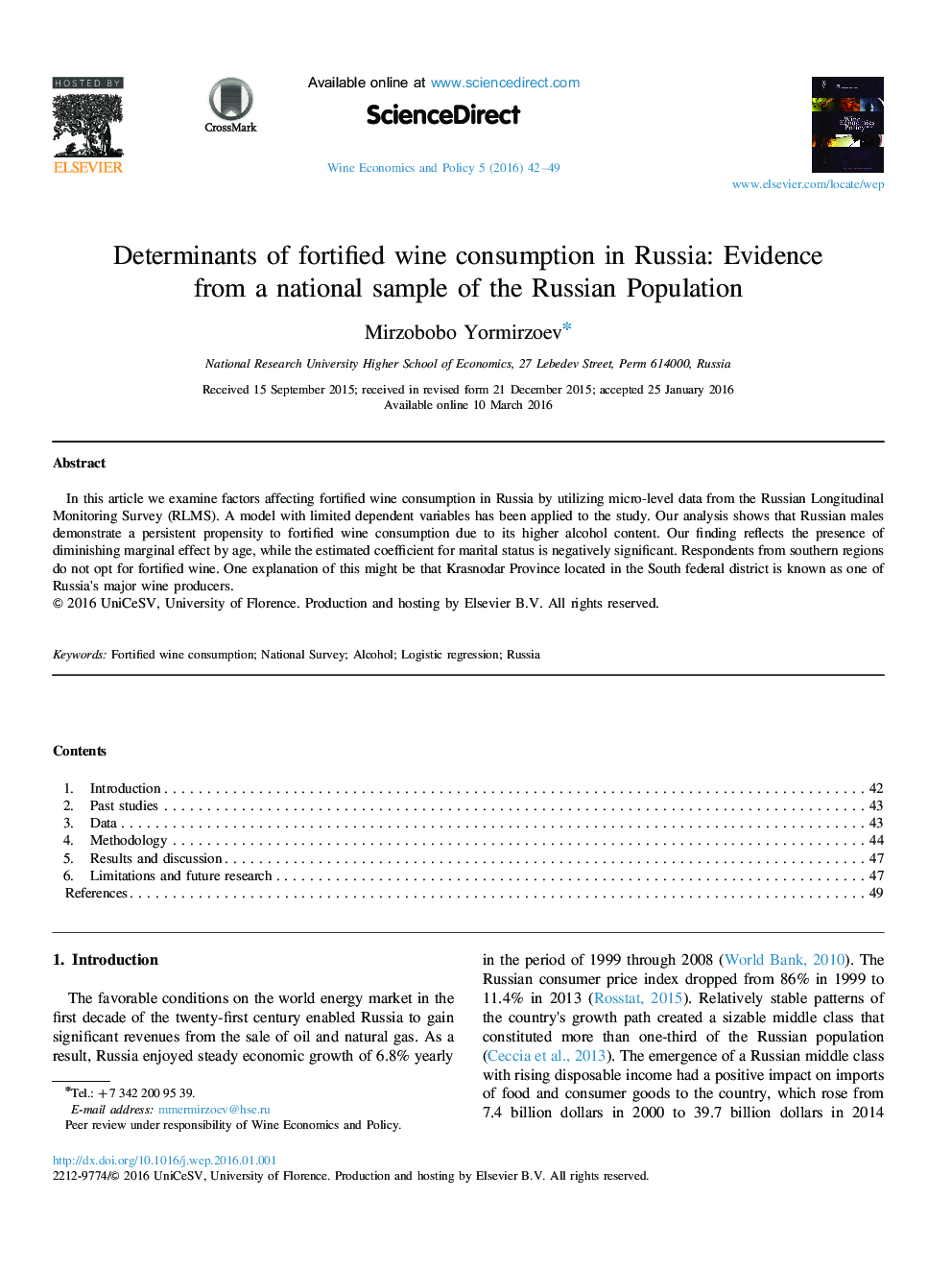| Article ID | Journal | Published Year | Pages | File Type |
|---|---|---|---|---|
| 1025341 | Wine Economics and Policy | 2016 | 8 Pages |
Abstract
In this article we examine factors affecting fortified wine consumption in Russia by utilizing micro-level data from the Russian Longitudinal Monitoring Survey (RLMS). A model with limited dependent variables has been applied to the study. Our analysis shows that Russian males demonstrate a persistent propensity to fortified wine consumption due to its higher alcohol content. Our finding reflects the presence of diminishing marginal effect by age, while the estimated coefficient for marital status is negatively significant. Respondents from southern regions do not opt for fortified wine. One explanation of this might be that Krasnodar Province located in the South federal district is known as one of Russia׳s major wine producers.
Related Topics
Life Sciences
Agricultural and Biological Sciences
Food Science
Authors
Mirzobobo Yormirzoev,
